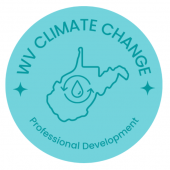
Abstract: The West Virginia Climate Change Professional Development (WVCCPD) Project was developed in 2019 as an effort to engage West Virginia K-12 teachers and informal educators in climate change professional development to encourage learning and action. Started by astronomy educators who are passionate about climate change, the project has been an experiment that has iteratively grown each year. By bringing in social science experts, communication specialists, community activists, master teachers, and learning how to best support teachers and their students through misconceptions and empowering action, we have engaged over 130 W.Va. educators. WVCCPD represents a promising case study for how educators can come together across disciplines and institutions to build an engaging climate change learning community, even in West Virginia, an area that is known for fossil fuel extraction. We hope this paper informs other teacher education practitioners.
Continue Reading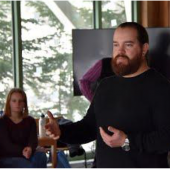
Ojibwe education is used at Conserve School, an environmental semester school, to help high school students better understand diverse perspectives on stewardship and to explore the history, cultures and place of the Northwoods of Wisconsin. In the Environmental Stewardship class, students learn about indigenous history, culture and environmental perspectives from a local Ojibwe forester. The students use this perspective to help them appreciate their place at Conserve School and explore their own environmental ethics. Students also participate in Ojibwe seasonal celebrations to better comprehend how place and people are interrelated.
Continue Reading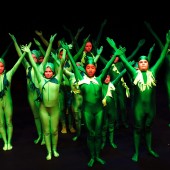
I created Shine, a mini-musical performance for 4th-12th grade students that uses theatre to explore issues of sustainability. It weaves climate science and artistic expression into a funny and powerful story that spans three hundred million years of geological time to convey the relationship between energy, humanity, and climate. Rehearsing each song in this half-hour musical immerses youth in the issues surrounding climate and energy and leads participants in embodying different aspects of climate science and human development that brought us to this point– where our use of fossil fuels is impacting our climate. The first half of the show is professionally scripted, composed, and choreographed to tell the story that has already been told by history. The second half—our future story– is made up of skits authored by local youth to generate solutions for their community’s sustainability challenges. A final song and dance celebrates this achievement and embeds the spirit of commitment into the catchy tune that students will be singing for perhaps decades to come.
Continue Reading
The purpose of this policy study is to provide to educators and curriculum writers a critical account of the diversity and contestability of the conceptions of sustainability embedded into the policies and processes related to the transformation of K-12 curriculum in British Columbia (B.C.), Canada. First, we examine the different conceptions of sustainability within the context of distinctive socio-cultural paradigms: the industrial, the existentialist, and the symbio-synergetic. Second, we address the following key questions: in what socio-cultural paradigm is the dominant conception of sustainability grounded in new K-12 curriculum policy in B.C. and in which ways does that paradigm question the dominant industrial notion of modernity and development?
Continue Reading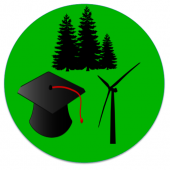
Linking ecology and energy literacy efforts is an essential step for producing scientifically literate citizens who are able to make informed choices about energy, yet the two literacies have developed independently. To explicitly link these, we explored the interface between ecology, energy and education by inviting experts from diverse fields to share perspectives on how to improve public literacy in ecology and energy. This paper presents a synthesis of three organized sessions at the Ecological Society of America (ESA) August 2014 annual meeting: a symposium on a broad range of issues related to energy, ecology and sustainability; an organized oral featuring innovative approaches using ecological concepts to educate Kindergarten through college students about energy, and a share-fair where these innovations were demonstrated. Presentations represented all age-levels, non-formal and formal education, the geophysical sciences, public policy experts, government agencies, ecologists and sociologists, faith-based and environmental non-profits.
Diverse, creative and innovative educational approaches are underway, with major government funding attesting to their import. For ecologists, most of the energy applications centered on sustainability issues, and focused on climate change caused by fossil fuel development. Emerging considerations include direct impacts of energy development and transmission on ecosystems. Conversely, energy literacies should consider the role of ecology, given the ecological impacts involved in decisions about energy extraction and transport. General public audiences including environmental, faith-based and environmental justice communities are increasingly considering environmental dimensions in energy decisions and policy outreach but often on single, time-sensitive issues. Adult education would benefit from a more comprehensive integration of energy and ecology.
We propose that including an explicit ecology dimension in the energy literacies, and similarly involving energy application in the ecology literacies, would be synergistic and allow these inclusive and inherently interdisciplinary fields to flourish and best serve our educational goals of achieving an informed citizenry.
Continue Reading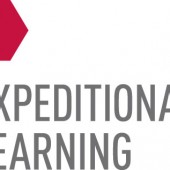
Millions of youth in the United States today are mandated to go to “work” daily. Indoor spaces, hard, plastic seats, and inauthentic menial tasks characterize their workplace. In a time in which the life support systems of our planet are imperiled and more humans are living in communities of poverty and violence, there exists an absurd disconnect between how education is currently practiced and the education that is needed to facilitate deep cultural revolution. Our teachers are taught to teach using the same irrelevant pedagogies, sitting in rows inside institutions of higher learning, taking notes, and memorizing disconnected facts for regurgitation on multiple-choice exams. My argument is that we are not going to be able to implement any true attempts in sustainability education without concomitant change in the way we teach teachers. While publicly funded schools still provide an equalizing agent to potentially provide opportunity for all children regardless of their race or social class, no school can truly educate children to meet the coming demands of our time without experiential teacher education. Expeditionary Learning, a national reform model for public schools, creates lasting change in the praxis of teaching by creating opportunities for teachers to learn in a different way than they have often been taught as students themselves. With continued coaching when they return to their classrooms, teachers are able to create learning environments embodying inquiry and authenticity so that our youth are empowered to affect societal change.
Continue Reading